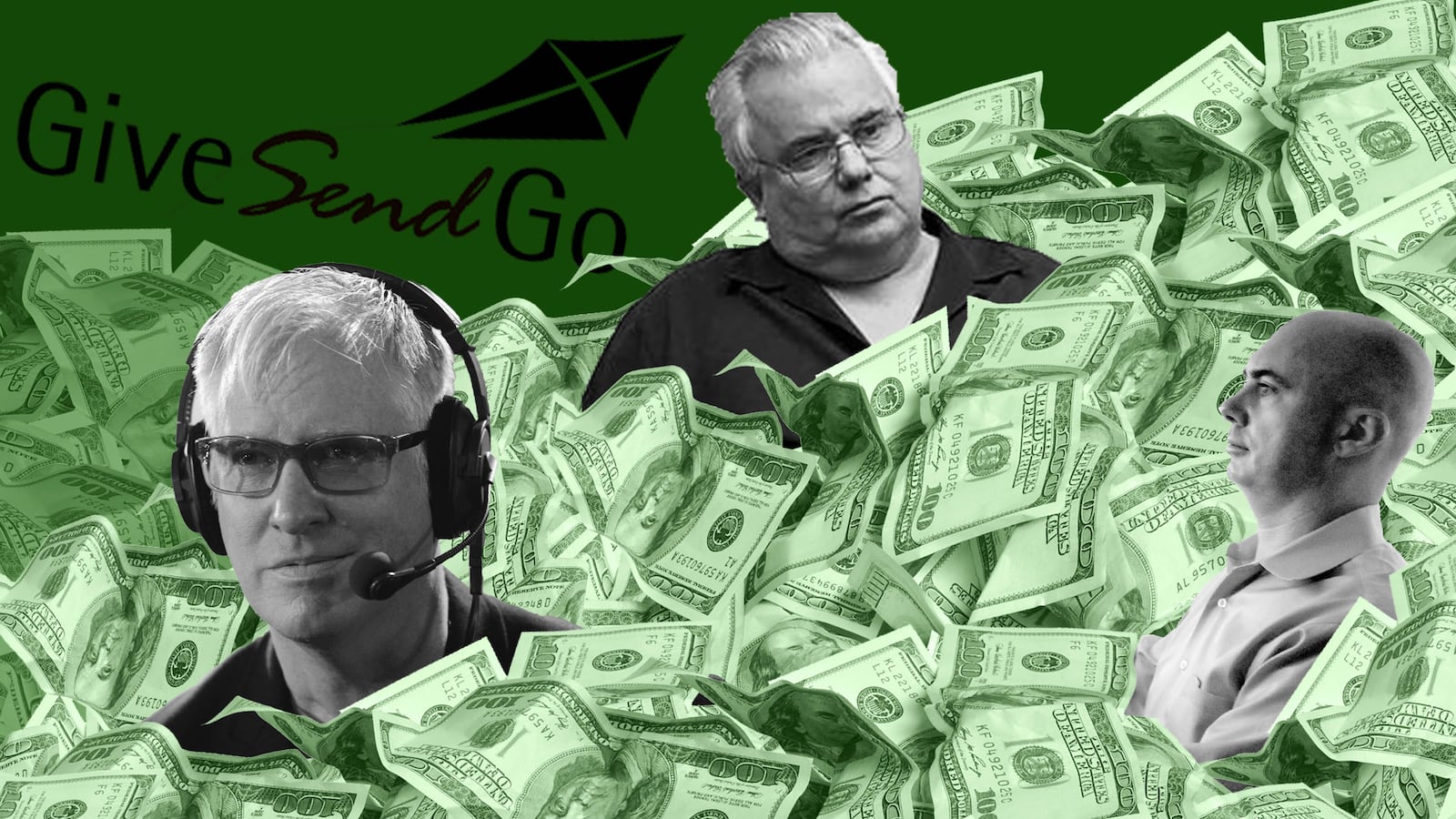Software engineer Dennis Montgomery has made a living making wild claims that fail to pan out.
His company received millions from the CIA during the George W. Bush administration with the idea that he had a program that could find secret al-Qaeda transmissions—a promise that, according to experts, was entirely fictitious. Then he convinced controversial Arizona Sheriff Joe Arpaio that he could find secret messages showing a judge colluding with law enforcement against Arpaio, a promise that once again failed to come true.
Now, as Trump supporters scramble for proof that the president really won, Montgomery has promoted the idea that the election was stolen by a nefarious pair of CIA programs called Hammer and Scorecard.
So far, Montgomery and his supporters—a list that includes Ret. Lt. General Thomas McInerney and headline-grabbing former Trump lawyer Sidney Powell—haven’t produced any proof that Hammer and Scorecard exist outside of Montgomery’s imagination. Montgomery’s claims have also been easily refuted by government officials.
But there is one place where Montgomery is succeeding: GiveSendGo, a previously little-known Christian crowdfunding site originally targeted at missionaries. A GiveSendGo page bearing Montgomery’s name has raised more than $27,000 for him, with a promise to take on the deep state’s election interference and stop a socialist takeover of America.
“Keep pressing Dennis!” wrote one anonymous donor who gave $5,000 to Montgomery last week.
The reason Montgomery is turning to a Christian crowdfunding site to help finance his decidedly secular efforts to overturn the election is simple. GiveSendGo is quickly becoming the go-to place for crowdfunding ventures that are far too extreme for more mainstream platforms. Indeed, Montgomery is one of several self-proclaimed election fraud investigators who have raked in a combined hundreds of thousands of dollars from aggrieved Trump supporters on the site.
GiveSendGo was launched in 2015 with a focus on Christian missionaries and other religious efforts, the site’s co-founder Jacob Wells told The Daily Beast. Before the site took off, the list featured fundraisers including medical expenses for sick children, for example, or buying children’s books for the foster care system.
But the site exploded into the broader right this summer after GoFundMe—GiveSendGo’s much better-known crowdfunding rival—banned fundraisers for Kenosha, Wisconsin, murder suspect Kyle Rittenhouse. The Rittenhouse fundraiser moved to GiveSendGo, where it has raised more than $580,000.
Wells said the decision to host the Rittenhouse fundraiser “broke the floodgates” on GiveSendGo’s reputation as a place for fundraisers kicked off of other sites.
“Our name has gotten pushed out as a result of that,” Wells said. “It wasn’t necessarily the intention. We felt we were doing what was right in the moment.”
Things took off again after the election, when GoFundMe banned former Trump campaign staffer Matt Braynard’s effort to investigate supposed election irregularities and refunded his donors after he had raised more than $200,000.
“The fundraiser attempted to spread misleading information about the election and has been removed from the platform,” a GoFundMe spokeswoman told The Daily Beast in a statement about Braynard’s fundraiser. “All donors have been refunded.”
Braynard moved to GiveSendGo, where he appears to have made the most money out of any of the self-proclaimed election sleuths. Braynard had raised more than $674,000 on the site for his “Voter Integrity Project” before he stopped accepting donations, promising that any leftover funds would be used for voter registration and an “anti-voter fraud project.”
Right-wing blogger Jim Hoft, whose popular The Gateway Pundit blog often promotes hoaxes, is also building a six-figure war chest on GiveSendGo. A group calling itself the “Justice League of America” has raised more than $100,000 for Hoft as of this writing, promising to send a film crew and reporters to Michigan to investigate “voter irregularities and fraud.”
Hoft and Braynard didn’t respond to requests for comment about their fundraisers or how they intend to spend the large sums they raised. Montgomery couldn’t be reached for comment.
Wells said his site isn’t taking a cut of the funds raised, and is instead funded by separate donations. He said that his company works to learn more about fundraising organizers as their pages earn more money in an attempt to avert dishonest efforts, but he conceded that fraud is “rampant” in the crowdfunding industry.
Even as Trump supporters pump money into the voter fraud efforts, it’s not clear that the donations are translating into real-world wins for the president.
Braynard, for example, has become a right-wing star in the aftermath of the election with his supposed evidence of voting irregularities. He’s spent at least $150,000 of donors’ money on data he claims are key to the evidence of election irregularities, according to a spreadsheet Braynard published on GiveSendGo. But his claims haven’t lasted long in court.
One lawsuit that cited him was tossed out by the Wisconsin Supreme Court, with a justice writing that it was based only “on the unsworn expert report of a former campaign employee.”
A legal filing in Georgia went even further, citing Harvard University government professor Stephen Ansolabehere’s review of Braynard’s data and claims.
Braynard’s inferences from the data he had spent tens of thousands of dollars on, the professor wrote, had “no scientific basis,” while his claims failed to “meet scientific standards.”







